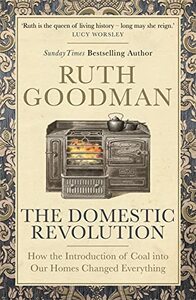You need to sign in or sign up before continuing.
Take a photo of a barcode or cover
challenging
informative
inspiring
medium-paced
informative
reflective
medium-paced
Fascinating geographical account of m domestic fuel use and how that changed the British Isles forever.
informative
medium-paced
informative
reflective
slow-paced
You would think that a 350 page book entirely about the advent of domestic coal usage in the UK during the Victorian era would get a little boring, but not this time!
Goodman writes not only about the historical facts, going over detailed records of household goods and how coal became the default fuel for poorer people, but she adds her own experience with using wood and coal for cooking in the different reenactments she's done, which answers a tremendous amount of practical questions that would be hard to guess unless you'd seen how it was used. It explains why the recipes, the pots and the cooking utensils changed. Also fascinating the chapters about cleaning, the adoption of soap as the norm. Brilliant.
Goodman writes not only about the historical facts, going over detailed records of household goods and how coal became the default fuel for poorer people, but she adds her own experience with using wood and coal for cooking in the different reenactments she's done, which answers a tremendous amount of practical questions that would be hard to guess unless you'd seen how it was used. It explains why the recipes, the pots and the cooking utensils changed. Also fascinating the chapters about cleaning, the adoption of soap as the norm. Brilliant.
informative
reflective
slow-paced
When Ruth said coal changed everything she meant EVERYTHING. She thoroughly covers every aspect of life from food to cleaning to transportation to national security. I was honestly not expecting to learn as much as I did. Covering so much and going back to the beginning for each topic did start to feel a little tedious after a while, but it was all pretty interesting and worth reading.
informative
slow-paced
informative
medium-paced
informative
reflective
relaxing
medium-paced
informative
reflective
slow-paced




